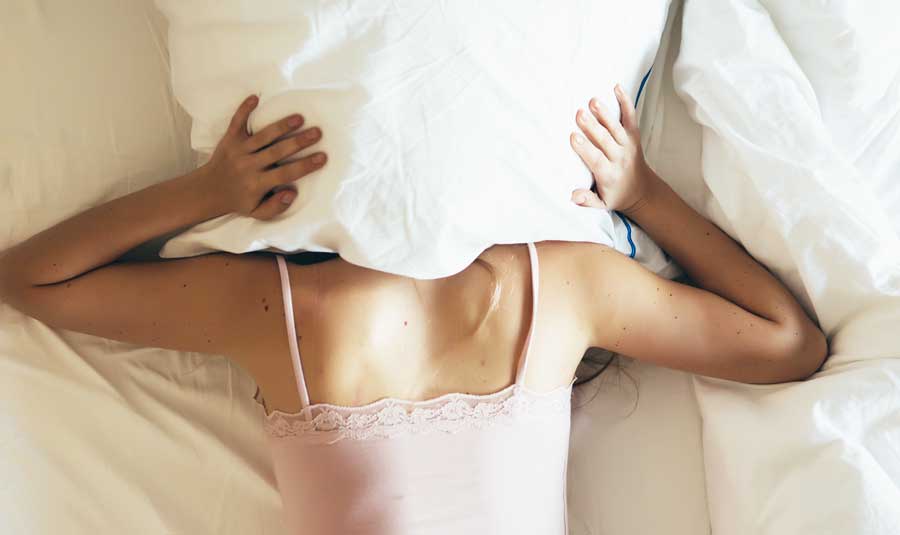There might be a lot of causes like stress, restlessness, overthinking, physical conditions Current blog describes the cause of sleeplessness.
Insomnia is a type of sleep disorder by which a lot of people are suffering nowadays.
Millions of people are suffering from this sleep disorder insomnia. Insomnia is a sleep disorder. In short, individuals with insomnia find it difficult to fall asleep or stay asleep. The effects can be devastating. Insomnia commonly leads to daytime sleepiness, lethargy, and a general feeling of being unwell, both mentally and physically. This condition leads to Mood swings, irritability, and anxiety are commonly associated with symptoms. Insomnia has also been associated with a higher risk of developing chronic diseases.
According to the research conducted by National Sleep Foundation, almost 30-40 percent of American adults were reported that they have symptoms of insomnia within the last year, 10-15 percent of adults claim to have chronic insomnia.
Causes
Insomnia is mainly caused by physical and psychological factors. Sometimes there is an underlying medical condition that causes chronic insomnia, while transient insomnia may be due to a recent event or occurrence. Insomnia is commonly caused by:
Psychological issues – The main Psychological issues which lead to insomnia are bipolar disorder, anxiety disorders, and depression.
Medical conditions – Such medical conditions that cause insomnia are chronic pain, , sleep apnea chronic fatigue syndrome, acid-reflux disease (GERD) , congestive heart failure, angina,) chronic obstructive pulmonary disease, asthma, Parkinson’s and Alzheimer’s diseases, hyperthyroidism, arthritis, brain lesions, tumors, stroke. Hormones – estrogen, hormone shifts during menstruation.
Other factors like disturbance caused by snoring, parasites, genetic conditions, overactive mind, pregnancy, media technology in the bedroom
Symptoms of Insomnia
Insomnia itself may be a symptom of an underlying medical condition. However, there are many signs and symptoms that are associated with insomnia:
Difficulty falling asleep at night, Waking during the night., Waking earlier than desired., Still feeling tired after a night’s sleep, Daytime fatigue or sleepiness, Irritability, depression, or anxiety. Poor concentration and focus, Being uncoordinated, an increase in errors or accidents, Tension headaches (feels like a tight band around head), Difficulty socializing, Gastrointestinal symptoms, Worrying about sleeping.
Sleep deprivation can cause other symptoms. The afflicted person may wake up not feeling fully awake and refreshed, and may have a sensation of tiredness and sleepiness throughout the day.
Types of Insomnia
Transient insomnia – This type of insomnia occurs when symptoms last up to three nights.
Acute insomnia – This type is also called short-term insomnia. Symptoms persist for several weeks.
Chronic insomnia – Chronic Insomnia is the worst type of insomnia because it lasts for months, and sometimes years.
Treatment of Insomnia
Good sleep hygiene, including avoiding electronics before bed, can help treat insomnia. Some types of insomnia resolve when the underlying cause is treated or wears off. In general, insomnia treatment focuses on determining the cause. Once identified, this underlying cause can be properly treated or corrected.
In addition to treating the underlying cause of insomnia, both medical and non-pharmacological (behavioural) treatments may be used as therapies.
Non-pharmacological approaches include cognitive behavioral therapy (CBT) in one-on-one counselling sessions or group therapy:
Medical treatments for insomnia include:
prescription sleeping pills, antidepressants, sleep aids available online or over-the-counter, antihistamines, melatonin, which can be purchased online, ramelteon, Home remedies, There are many Home remedies for treatment of insomnia which includes:
Improving “sleep hygiene”: Not sleeping too much or too little, exercising daily, not forcing sleep, maintaining a regular sleep schedule, avoiding caffeine at night, avoiding smoking, avoiding going to bed hungry, and ensuring a comfortable sleeping environment.
Using relaxation techniques: Examples include meditation and muscle relaxation.
Stimulus control therapy – only go to bed when sleepy. Avoid watching TV, reading, eating, or worrying in bed. Set an alarm for the same time every morning (even weekends) and avoid long daytime naps.
Risk factors
Insomnia can affect people of any age; it is more common in adult females than adult males. It can undermine school and work performance, as well as contributing to obesity, anxiety, depression, irritability, concentration problems, memory problems, poor immune system function, and reduced reaction time.
Some people are more likely to experience insomnia. These include:
travellers, particularly through multiple time zones, shift workers with frequent changes in shifts (day vs. night), the elderly users of illegal drugs, adolescent or young adult students, pregnant women, menopausal women, those with mental health disorders
How TMJ & Sleep Therapy Center Helps in treatment of Insomnia?
TMJ & Sleep Therapy Center offers sleep apnea treatment Los Angeles as we are one of the best sleep Specialist for such sleep disorders in Los Angeles. You may also visit our California Center for Insomnia Disorders Treatment and we also operating Los Angeles Sleep Institute for the treatment and prevention of your sufferings.

